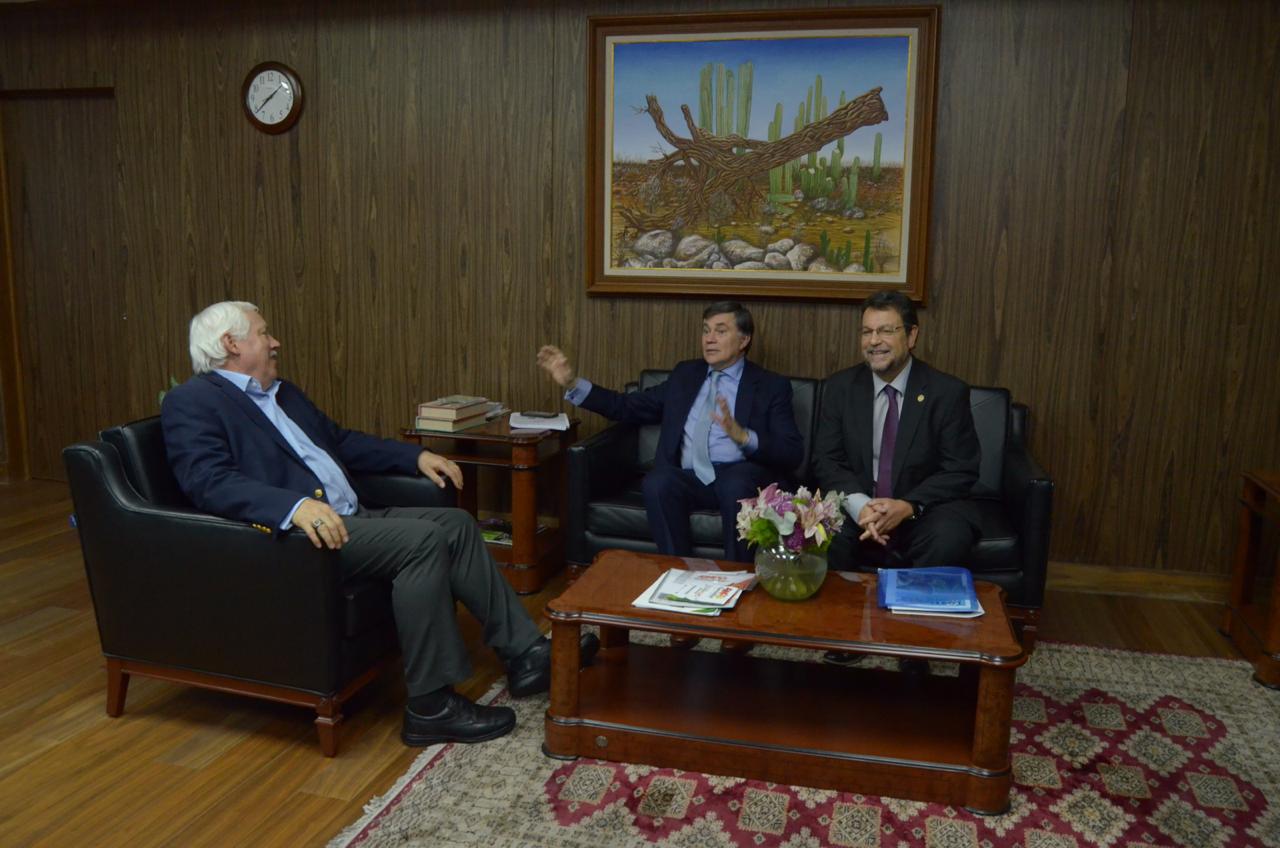Víctor Villalobos Arámbula, Mexico’s Secretary of Agriculture and Rural Development, and Manuel Otero, the Director General of the Inter-American Institute for Cooperation on Agriculture (IICA), have committed to redouble joint efforts for the benefit of the Mexican agriculture sector.

Mexico City, 2 April, 2019 (IICA). – Víctor Villalobos Arámbula, the Mexican Secretary of Agriculture and Rural Development, and Manuel Otero, Director General of the Inter-American Institute for Cooperation on Agriculture (IICA), agreed to redouble joint efforts to strengthen the country’s agrifood sector.
At a meeting in Mexico City, Villalobos and Otero agreed to intensify technical cooperation and to expand opportunities for joint work, in keeping with priorities for Mexico’s rural areas.
The head of the Secretariat of Agriculture and Rural Development (SADER) applauded the coordinated efforts undertaken with the international organization, in developing projects to benefit agriculture.
Villalobos maintained that the agrifood sector is destined to be a driving force for the development of Mexico, a goal to which IICA is contributing through its actions to improve competitiveness and productivity.
“IICA is a strategic partner and its work has been organized and extremely useful for the country”, said Villalobos.
Otero, on the other hand, recognized “the confidence that has been placed in IICA to develop several projects that are already underway in 2019, in the areas of agricultural health, territorial management, agriculture, agricultural development, evaluation, innovation, and climate change”.
SADER identified four priority projects, the most significant of which focus on expanding the basic food basket, facilitating credit for small livestock farmers, fertilizer production, and creating food self-sufficiency in cereals and milk.
IICA’s projects in Mexico are being implemented under a general agreement with SADER and with public and private institutions, and have earned the recognition of Mexican authorities, due to the fact that the technical capacity provided has strengthened agrifood activity in the country.
IICA’s main technical contributions have involved generating public policies and institutional frameworks; enabling technological, institutional and trade innovation; promoting agricultural health and agrifood safety; providing capacity building for businesses and stakeholder associations in the chains and in rural areas; as well as facilitating international cooperation relationships, linkages, and coordination.
More information:
Diego Montenegro, IICA Representative in México.
diego.montenegro@iica.int











